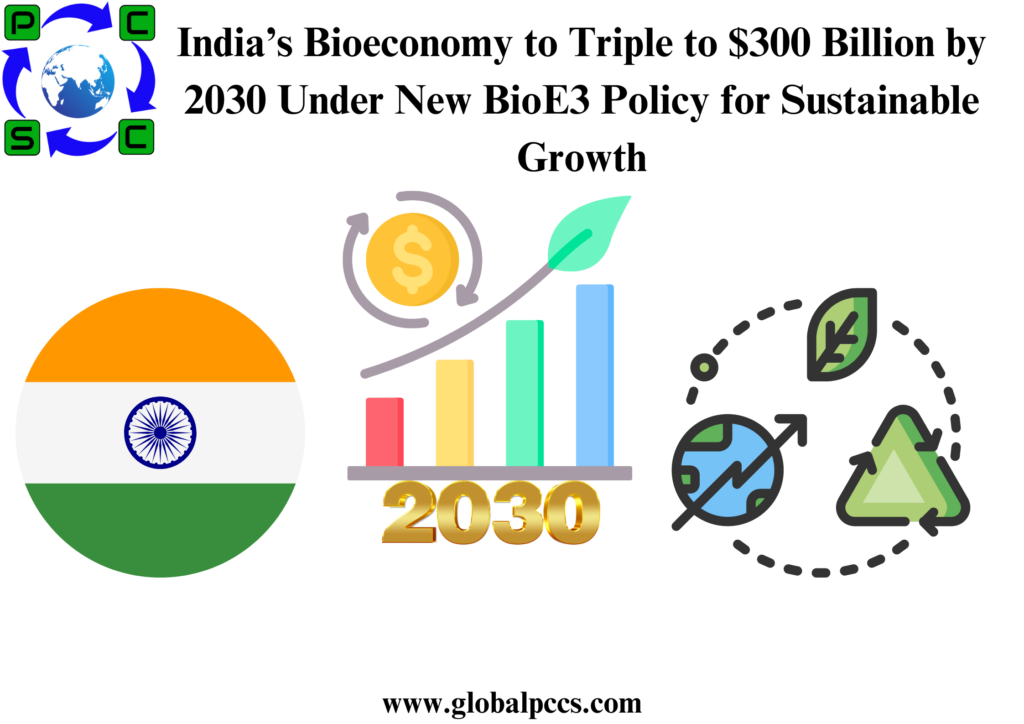
- Rapid Growth: India’s bioeconomy grew from $10 billion in 2014 to over $130 billion in 2024, projected to reach $300 billion by 2030.
- Sustainable Shift: The new BioE3 policy aims to transition from chemical-based industries to sustainable bio-based models, promoting net-zero emissions.
- Massive Investment Needs: India requires $10-15 trillion in new investments to achieve its net-zero carbon emissions target by 2070.
India is on a path to significantly expand its bioeconomy, with projections indicating growth from $130 billion in 2024 to $300 billion by 2030. This expansion is driven by the newly introduced Biotechnology for Economy, Employment and Environment (BioE3) policy, which aims to position India as a leader in sustainable development and bio-based industries.
A New Era for India’s Bioeconomy
India’s bioeconomy has grown thirteenfold over the past decade. “India’s bioeconomy has experienced a remarkable growth, from US$10 billion in 2014 to over US$130 billion in 2024, with projections to reach US$300 billion by 2030,” said Jitendra Singh, Minister for Science and Technology. This growth is part of a broader strategy to address global challenges such as climate change and the depletion of non-renewable resources.
Shifting Towards Sustainability
The BioE3 policy promotes a shift from traditional chemical-based industries to sustainable bio-based models. This approach focuses on developing a circular bioeconomy, achieving net-zero carbon emissions, and encouraging the production of bio-based products. These efforts align with global trends, similar to the European Union’s “Green Taxonomy,” where sustainable activities are certified and promoted by governments.
Investment and Future Outlook
Achieving India’s ambitious net-zero carbon emissions target by 2070 requires significant investment. Government projections estimate the need for $10-15 trillion in new investments. The BioE3 policy is a step towards this goal, promoting sustainable economic growth and environmental stewardship. Last year, India’s first sovereign green bonds raised 80 billion rupees (approximately $981.31 million), marking a critical move towards financing these ambitious goals.
India’s commitment to expanding its bioeconomy under the BioE3 policy underscores the country’s dedication to sustainable development and addressing the global climate crisis.








 Authorised IMDS & CDX Training & Consulting partner for
Authorised IMDS & CDX Training & Consulting partner for





